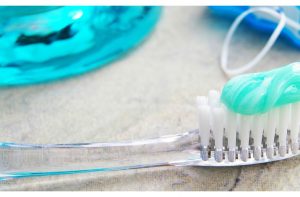GOOD oral health requires a team effort between yourself and your dentist. In order for it to be successful, you must realise that only you can make the effort a success. The outcome will depend on how well you clean your teeth, gums and tongue each day. A healthy diet is also important.
 For most of the 20th century, the major emphasis in dentistry has been on the avoidance of dental caries. For decades dental professionals are realising they need to focus on preventative maintenance of gum disease as well. Now, the techniques exist to eliminate virtually all local factors (plaque and calculus) responsible for gum disease. So it is not only prudent but crucial for countries like Guyana, whose foreign exchange earnings is inherently linked to national development, to emphasise on prevention of oral diseases.
For most of the 20th century, the major emphasis in dentistry has been on the avoidance of dental caries. For decades dental professionals are realising they need to focus on preventative maintenance of gum disease as well. Now, the techniques exist to eliminate virtually all local factors (plaque and calculus) responsible for gum disease. So it is not only prudent but crucial for countries like Guyana, whose foreign exchange earnings is inherently linked to national development, to emphasise on prevention of oral diseases.
Homecare involves the use of a toothbrush, toothpaste, mouthwash and floss. Good home care is the backbone of preventing dental disease. One should never forget this statement because it is an important tenet. Brushing and flossing are the two primary methods of providing good homecare for you and your children. Brushing with an approved toothpaste can be of significant value when used in a conscientiously applied programme of oral hygiene. The “programme” is one you must orchestrate in conjunction with your dentist.
In general, dental examinations are usually done every six to 12 months. Some dentists determine this based on your DMF index – a way of counting how many of your teeth are decayed (D), missing (M), or filled (F). It also depends on how quickly you build up calculus (tartar).
Studies show there are two myths that commonly lead to a lapse in in-home care. Patients who have been successful in reversing a periodontal problem with a preventative care programme sometimes believe that some permanent immunity has been created. In addition, some patients who have completed periodontal therapy may feel they have been ‘cured’ with no possibility for recurrence. Both of these beliefs are false.
When dental professionals focus on prevention it allows periodontal disease to be intercepted with relatively simple procedures. This reduces the need for complicated treatment options caused by delayed diagnosis.
Today, preventative dentistry is considered a standard of dental practice. It is the primary way to ensure that good dental health and quality care are maintained over a lifetime. If preventative education is minimised or omitted, most dental professionals would consider this substandard care. A healthy mouth projects an attractive smile that is noticed by all. A person who takes care of his teeth and gums reflects a person who values himself or herself.
In addition to daily brushing, flossing, and using a mouth rinse, it is important to eat a balanced diet so that your body can get the nutrients needed for good health.
If your diet is low in the nutrients you need it will be hard for you to resist infection in the tissue of your mouth, which can contribute to periodontal (gum) disease. If children do not have a balanced diet their teeth may not develop properly. In order for them to develop strong, decay-resistant teeth, they need a balanced diet with emphasis on calcium, phosphorus, and proper levels of fluoride.
Your eating patterns and food choices are important factors in helping to reduce caries (decay) in your teeth. The reason is that everything you eat passes through your mouth. When you eat foods that contain carbohydrates, (sugars and starches), the bacteria in the plaque produces acids that can destroy tooth enamel. After repeated attacks, the tooth enamel begins to break down, forming a cavity.
In addition to white or brown refined sugar (sucrose), there are several other different kinds of sugars that are harmful to your teeth. These include fructose ( fruit sugar), glucose, lactose (milk sugar). Foods that contain sucrose naturally are melons, bananas, sweet potatoes and mangoes. Even the syrup from some liquid medications contains sugars. Processed foods that have sugar added are catsup, peanut butter and salad dressing. People who use ‘natural’ sweeteners such as honey, molasses, or corn sweeteners should realise all can contribute to teeth decay.
In recent years dental researchers have learnt that foods that contain starches can also cause the bacteria in plaque to produce acid. Foods that contain starches include bread, cereals, processed foods, fruits and vegetables. Many researchers believe that if starchy foods (especially those that contain sugar) are left on the teeth or in the mouth for any length of time they can be harmful.
It is important to remember that the acids in foods that contain carbs attack your teeth for 20 minutes or more after you eat. The more often you eat foods such as hard candies, breath mints, or cough drops, all of which stay in the mouth for extended periods of time. Foods that contain carbs are less harmful if they are eaten with a meal because the saliva production is increased at this time. Saliva helps to rinse food from the mouth. In the final analysis, oral health depends on the effective control of dental plaque.



.jpg)








